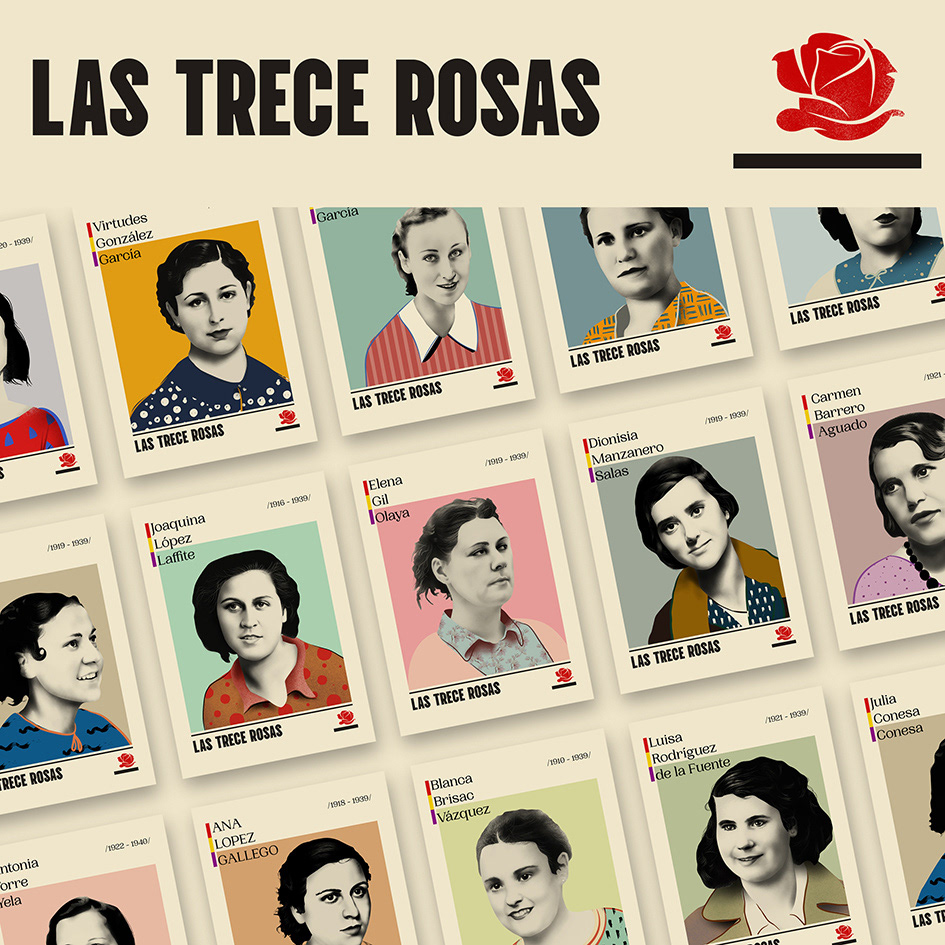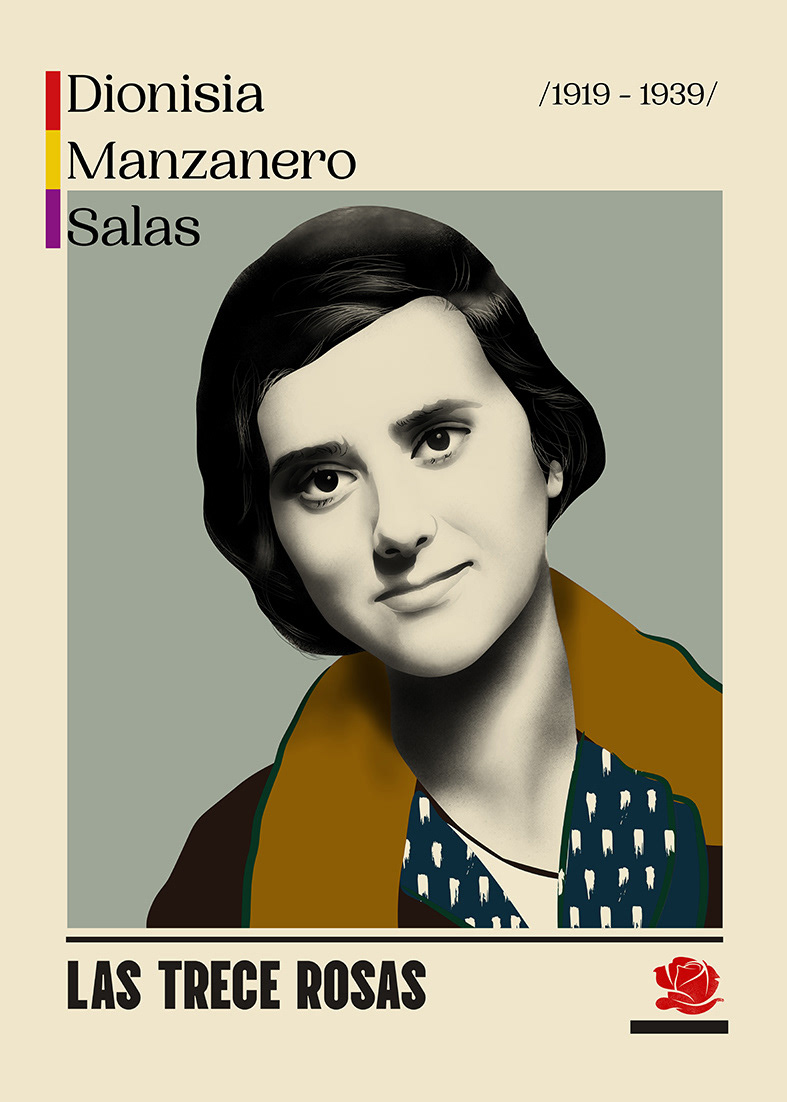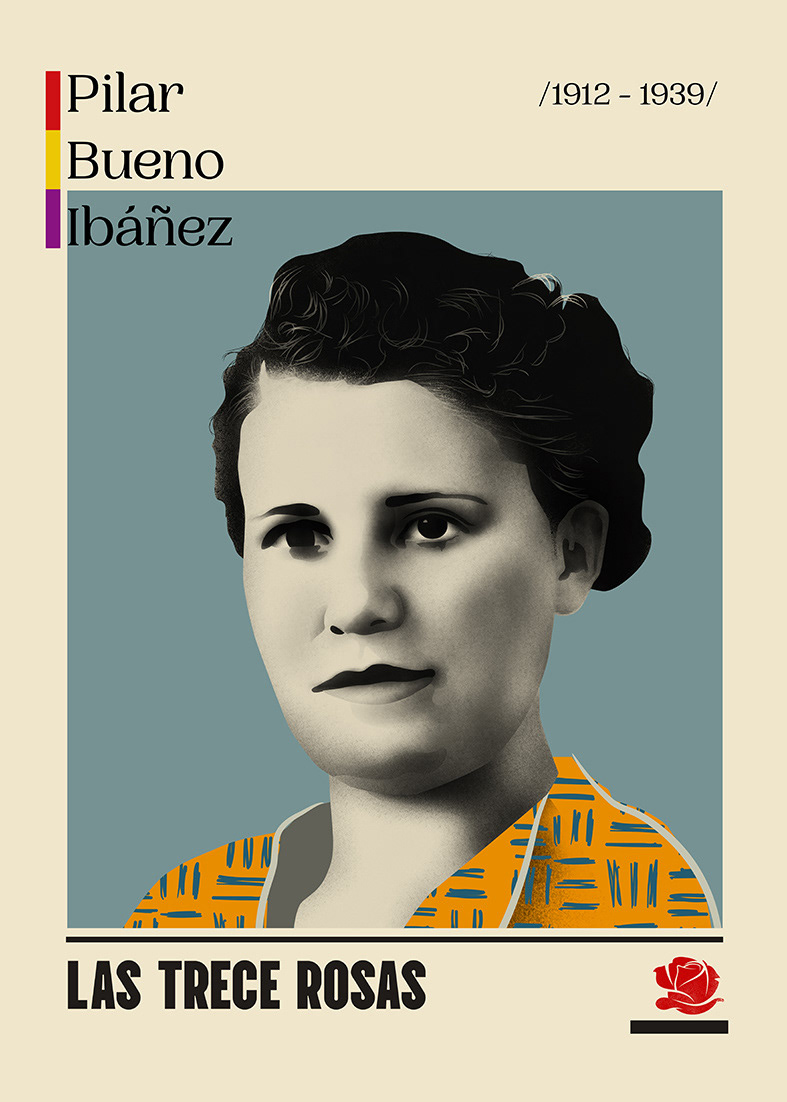Las Trece Rosas
This year I am dedicating International Women's Day to "Las Trece Rosas" (The Thirteen Roses) the name given in Spain to a group of thirteen young women who were executed by Francoist firing squads on August 5, 1939, shortly after the end of the Spanish Civil War. Their execution was part of a mass execution campaign known as "Saca de Agosto", in which another 42 young activists (among them a fourteen-year-old) were killed. They became a symbol of the fight against fascism, the fight for freedom, the fight for a better life.
Following the capitulation of Madrid and the end of the Civil War, Franco's fascist regime imprisoned many progressive society members and members of Unified Socialist Youth (JSU). The Thirteen Roses were among the many JSU members captured and imprisoned by the police. During their detention in the Ventas prison they were repeatedly tortured and humiliated, and conditions in the prison were considered inhumane and overcrowded. They were ultimately executed by firing squad against the wall of the East Cemetery (now la Almudena) on 5 August 1939 at 4:30 a.m. However the execution of Antonio Torres Jerra did not happen. This bureaucratic error extended her life until February 19, when she was shot along with sisters Concepcion and Fernanda Casado Malpica. and is considered "Rose Number Fourteen". Many of their comrades at the prison recall that while they were being driven away by lorry to their deaths, they sang the "Youthful Guardsmen" (JSU's anthem) so as to be heard by their comrades who remained in jail. The victims were accused of aiding a military rebellion and of assassinating a high-ranking political police officer, his 16-year-old daughter, and driver however, they were already in prison when the assassination occurred.


















